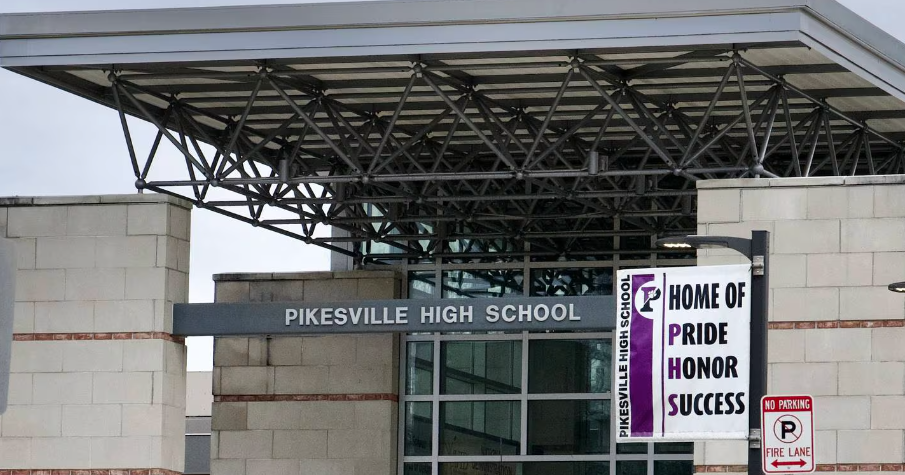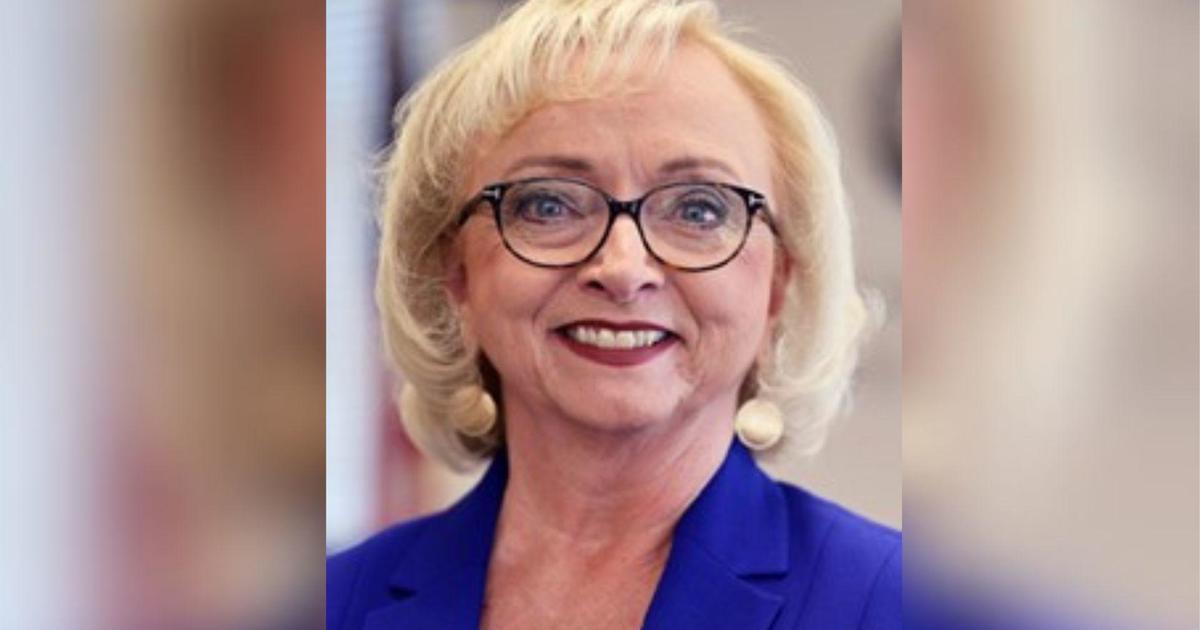Gas Drilling's Promise, Perils Rile Townsfolk
WASHINGTON (AP) -- Ron Hilliard came back from church one Sunday to find hundreds of plastic $5, $10, $20 and $100 bills hanging on his fence in Flower Mound, Texas, another message from townsfolk angry at him for signing a lucrative natural gas drilling lease for his suburban Dallas property.
In Damascus, Pa., about 1,500 miles away, drilling advocate Marian Schweighofer awoke one morning to the word "LORAX" — from the Dr. Seuss book about environmental destruction — spray-painted on the road near her family's 712-acre farm.
Hilliard and Schweighofer have never met, yet both are living with the nastiness and rancor erupting in communities nationwide over the volatile issue of hydraulic fracturing, or fracking.
This technique — used with horizontal drilling — allows rich stores of gas to be extracted from once out-of-reach, dense shale formations more than a mile underground. Intense drilling activity is under way in the Barnett Shale of Texas, the Marcellus Shale of Pennsylvania, and other producing shale regions around the country. As tens of thousands of Americans become energy magnates in their own backyards, tens of thousands more worry about environmental dangers. The industry insists the process is safe, for people and the environment.
This energy boom has turned neighbor against neighbor, split towns and families in bitter disputes, and touched off sharp debates over the sudden emergence of gas companies and their 14-story drilling rigs, some rising in the middle of towns and neighborhoods.
One side touts the jobs and prosperity drilling brings, allowing businesses to flourish and down-on-their-luck farmers to hang on to their land. Gas leases have made millionaires of some property owners. Regions long struggling economically are suddenly flush.
On the other side are those who either won't gain anything or who fervently believe the wealth isn't worth the risk. Alarmed by toxic spills, scattered drill site explosions and tainted drinking water, they fear a reduced quality of life and declining property values.
"Those who own their mineral rights are happier than a pig in mud," said Flower Mound resident Chris Tomlinson, who is making thousands of dollars a month from the gas wells drilled on his land. "Those who don't, want it to go away."
Fracking opponents complain the industry has taken environmental and safety shortcuts in their zeal to reap the vast stores of gas once locked tight within the shale.
The acrimony is not likely to subside anytime soon. Even with some 26,000 wells drilled in 16 states through the end of 2009 — more than half of those in Texas — the shale gas revolution is still relatively young.
Most of the wells have been drilled in the past decade, particularly in Pennsylvania's white-hot Marcellus Shale region and in the Barnett Shale of Texas, where the new extraction techniques were perfected and the boom began in earnest in 2006. Hundreds of thousands more wells could be drilled in coming decades, according to drilling companies and energy officials.
In Texas, a state so inextricably linked to drilling that an oil derrick adorns the license plate, the feuding in Flower Mound has been extraordinary.
A rural community about 30 miles northwest of Dallas, it had just over 15,000 residents in 1990 but exploded into an affluent and politically influential suburb of 70,000 by 2009. Relative newcomers drawn by its quality of life filled large brick homes in manicured subdivisions and send their children to highly ranked schools. By and large, they don't own their mineral rights — and many were outraged when gas wells began popping up near their neighborhoods, sometimes just a few hundred feet from schools and day care centers. Today, more than 40 wells are extracting gas in town.
On the other side are the longtime residents, farmers and ranchers who own their mineral rights and stand to make a lot of money on leases and royalties.
"It was pretty much neighbor against neighbor. People just turned on people ... and it's left some pretty nasty divides here in town," said Tomlinson.
Ron Hilliard's decision to have two wells drilled on his land, a half-mile from a Starbucks, two schools and hundreds of homes, brought vandalism, anonymous phone calls and insulting blogs and columns. He finally complained to police.
"I owned my mineral rights," Hilliard says defiantly. "So I'm not doing anything wrong." Hilliard, owner of a wholesale lumber business, would not disclose what he was paid for the lease or gas royalties.
Truck traffic on largely suburban roads in the Flower Mound area has increased significantly and the community has endured at least three major spills of thousands of gallons of production liquids. The Environmental Protection Agency suspects fracking may have contributed to water well contamination in Denton County — where Flower Mound and Dish, Texas, are located— and other Barnett Shale drilling areas.
The issues in Flower Mound simmered for months, then boiled over at a January 2010 city council hearing on a proposed plant to treat toxic fracking wastewater. About 600 people showed up, many against the plant, but the council set the plan in motion anyway.
That galvanized anti-drilling forces. After a bitter campaign, the town's pro-drilling incumbent mayor, Jody Smith, was ousted and an anti-drilling slate swept into office.
Less than 15 miles away is the rural town of Dish, population about 200, Mayor Calvin Tillman raised a national ruckus about gas drilling. The Dish area now has about 60 drilling wells, gas production pads and rigs, 12 pipelines, a treating facility and a compressor station.
Cancer-causing benzene, sometimes in levels considered dangerous to human health, were reported last year by Texas environmental regulators who took air tests in the Dish area. Residents believe at least one domestic water well was contaminated and that gas operations killed horses on a ranch not far from the compressor — a claim the gas companies dispute.
Tillman, whose home is about a quarter-mile from the compressor, was afraid for his two sons' health. Bad drilling odors coincided with nightly spikes in air emissions from the compression station, Tillman said on his blog, and were so bad that both of his youngsters were often awakened in the middle of the night with severe nosebleeds.
By February, Tillman decided to leave the community in which he had invested time, money and his heart. It was tough, he said.
"But it would be a whole lot tougher if my kids came down with some strange illness in five years," he added.
7/87/8___
New York, sitting atop the vast Marcellus Shale, has enacted a gas drilling moratorium that holds the wealth at bay while regulations are drawn up. New Yorkers — some wary, some perhaps envious — watch as landowners in Pennsylvania, Texas and other states get rich while regulators struggle with explosions, spills and tainted water.
"People that don't own the land are saying, 'Let's slow down and learn from the mistakes of other places,'" said Matthew Ryan, mayor of Binghamton, N.Y., in shale country about 60 miles north of Damascus. "Those that own land are anxious to 'drill, baby, drill.'"
Binghamton hosted the EPA last September for the last of four national hearings to get public input on the environmental and public health impacts of fracking.
EPA said 3,500 people crowded its hearings in Denver; Fort Worth, Texas; Canonsburg, Pa.; and Binghamton. In New York, opponents carried signs reading "Kids can't drink gas," while supporters, including union workers eager for jobs, chanted, "Pass gas now!"
"If you get a gathering of people together, there's tension and raised voices," said Ryan, who favors a more cautious approach that he believes would ensure strong enough regulations to protect public health and the environment.
In rural Pennsylvania, where nearly 3,000 gas wells have been drilled in the Marcellus Shale since 2005 and tens of thousands more are planned, the tension is leaving deep fissures in once tight-knit communities.
Schweighofer, a 54-year-old mother of five, founded the Northern Wayne Property Owners Alliance, more than 1,300 landowners who negotiated a master lease with New York City-based Hess Corp. to drill for natural gas in Pennsylvania's scenic northeastern tip.
She got several death threats from anti-drilling residents or activists — one woman declared she was "gonna shoot you with my thirty-aught-six" and a man advocated online that "one well-placed bullet" be put in Schweighofer's head. She began sleeping with a gun at her bedside.
"We're farmers," she said. "I'm not used to standing out and having folks holler at me, and saying evil things."
One member of her group, 70-year-old Mike Uretsky, says some neighbors don't talk to him since he signed the lease. Yet, the retired New York University professor says he understands where the other side is coming from.
"Everybody's interested in safety, aesthetics, community, quality of life," he said. "The interpretations of those things, and where the boundaries are, differ from one person to another. The frustrating thing is people can't sit down and talk and say, 'Hey, how do we work together?'"
The northeastern Pennsylvania village of Dimock, population 1,400, is another prime example of the split over drilling.
State regulators blame Houston-based Cabot Oil & Gas Corp. for contaminating residential water wells with methane gas. Some Dimock residents were able to light their tap water on fire — just as Colorado homeowners did in a dramatic scene in the Academy Award-nominated HBO documentary "Gasland," about the effects of hydraulic fracturing.
Some homeowners with fouled water have become high-profile anti-drilling activists, suing Cabot and taking their case to media outlets worldwide.
Two years of negative publicity brought those homeowners a backlash.
When Pennsylvania regulators ordered Cabot to spend $12 million to provide municipal water to the 19 affected homes, pro-drilling residents and businesses banded together as "Enough Already" and circulated a petition that 1,600 water line opponents signed. State regulators relented and settled with Cabot for $4.1 million, enough to pay the homeowners twice the value of their ruined homes.
The homeowners feel sandbagged by the community.
"You want to feel like a really lonely, lonely person?" asked Scott Ely, one whose water well was ruined. "Move to Carter Road," the gravel lane in the rural, forested area where most of the contamination was found. He said people he's known his whole life have turned against him.
"They think we are money-hungry. ... We're chasing the almighty buck," he said of the settlement money. He and the other homeowners had not asked for money and were content with the earlier plans to have clean water piped to them after nearly two years of bathing, washing, cooking and cleaning with trucked-in supplies. "We didn't want this."
Dimock attorney Bill Aileo, who helped lead the petition drive, believes the benefits of drilling have been lost amid an isolated case of contamination.
"I don't think anybody's abandoned them. I think they've become somewhat detached from reality," he said.
About 60 miles away, across the New York state line, business at Grady Avant's Narrowsburg coffee shop plummeted after a false rumor circulated that he and his partner had signed a gas company lease. He opposes drilling.
His regulars — largely opposed to drilling — stopped coming. People shot him dirty looks and some called to complain.
"It took weeks for us to undo most of it," he said, but eventually, business returned to normal.
Since then, Avant, 39, has helped start FrackAlert, a group that seeks to shift the debate to the larger political arena "to ease local tensions," he said.
"People have to treat each other better," he said, "or otherwise there will be no community when everything is done."
(Copyright 2011 by The Associated Press. All Rights Reserved.)



